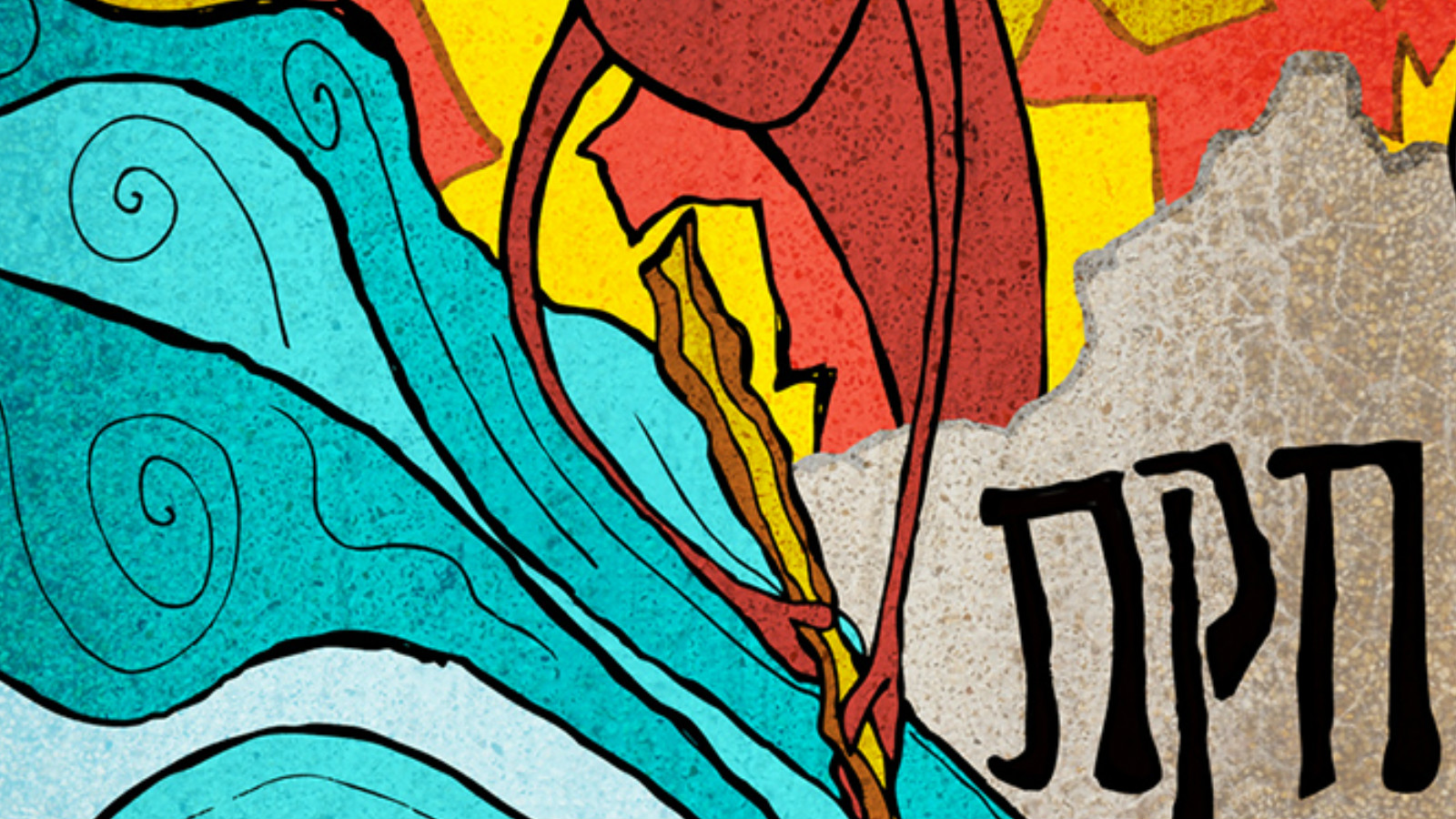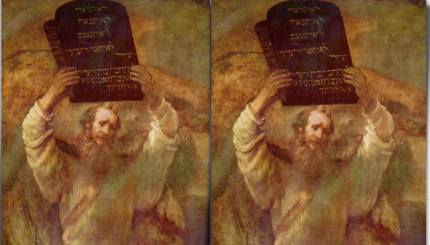Commentary on Parashat Chukat-Balak, Numbers 19:1 - 25:9
At first glance, the story of the Israelites wandering in the desert seems action-packed: It’s full of power struggles, sin and punishment, anger and awe. But in fact, all that drama may actually have been the exception to the rule.
Parashat Chukat tells us that the Israelite people arrived at the wilderness of Zin in the first month. The verse doesn’t say which year it is, but the 12-century Spanish commentator Abraham Ibn Ezra fills in the details of the timing.
In the first month – of the 40th year. In the Torah there is not any narrative or prophecy other than in the first year and in the 40th year.
In the blink of an eye, 38 years have passed. Everything we have read up to this point in the Book of Numbers happened in the first year of the wandering in the desert. But from this point on, it’s the 40th year. In between: 38 years of radio silence.
What could it have been like to live through 38 years of nothing? Was it mind-numbingly boring to wander through a monotonous desert with no word from God? Was it painfully sad to simply wait as the older generation died out and the ordained time passed?
Many of us have experienced time periods in our lives in which we felt that we were in a holding pattern, simply waiting for our real lives to begin. At one such time, I read and identified with Tennyson’s “Ulysses,” who returns from epic adventures and to enjoy his domestic life. But Tennyson imagines that he just feels stuck:
How dull it is to pause, to make an end,
To rust unburnished, not to shine in use,
As though to breathe were life!
In the end, Ulysses resolves to continue wandering and adventuring – to strive, to seek, to find, and not to yield. So too, perhaps the Israelites spent 38 years, dull and rusted in the desert sands, simply waiting to get out.
But even a period that is boring and empty at the time may look very different in hindsight. These 38 years, glossed over in real time, are imagined by later texts in glowing terms. Jeremiah 2:2 recalls these desert days in this way:
I accounted to your favor the devotion of your youth, your love as a bride, how you followed me in the wilderness, in a land not sown.
This doesn’t sound like the complaint-filled stories we know from this section of the Torah. Rather, it sounds like a reminiscence of years spent quietly walking together, the people following God through the wilderness, filled with trust and love. Perhaps the Torah draws the curtain on those years because they were too personal, too intimate to share.
While the Torah doesn’t narrate any incident or prophecies from these years, later in the Book of Numbers it lists the places where the Israelites traveled. And Rashi cites a Midrash in which that list also becomes a nostalgic reminiscence:
This can be compared to a king whose son was sick, and he took him to a distant place to heal him. On the way back, his father listed the travels: here we slept, here we bathed, here your head hurt.
Some of my children’s most vivid memories, the stories they love to tell and retell, are about the times they suffered minor injuries or illnesses. Of course, it was stressful and probably tearful at the time. But after everything turned out all right it made a great story. And there is a special intimacy in those moments, remembering how your parent tried to distract you during your stitches or slept next to you while you coughed at night. Long after the memory of the pain fades, the memory of the closeness and love remains.
This Midrash casts the journey of the Israelites in the desert as a healing journey. And indeed, when they come out on the other end, they are stronger as a nation. They are ready to face the enemies about to attack them and emerge triumphant. And they are ready to merit the blessings that will soon come from the prophet Bilaam.
Sometimes during the down times in our lives, when nothing exciting seems to be happening, we are actually doing the most important work—strengthening our relationships, growing and healing. And sometimes the meaning we give events as they happen is not the only true meaning; we may see it all more clearly in hindsight.



